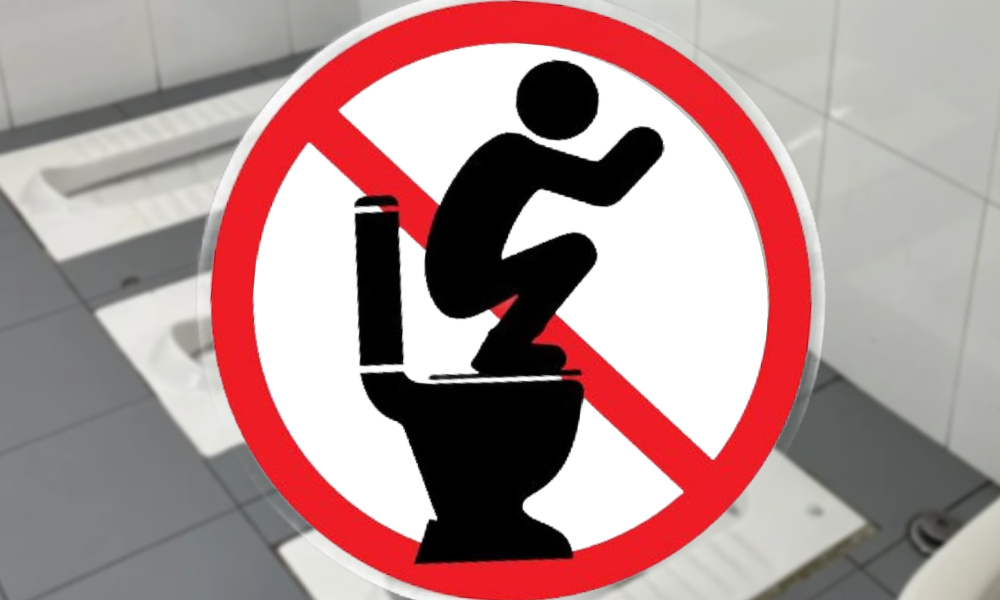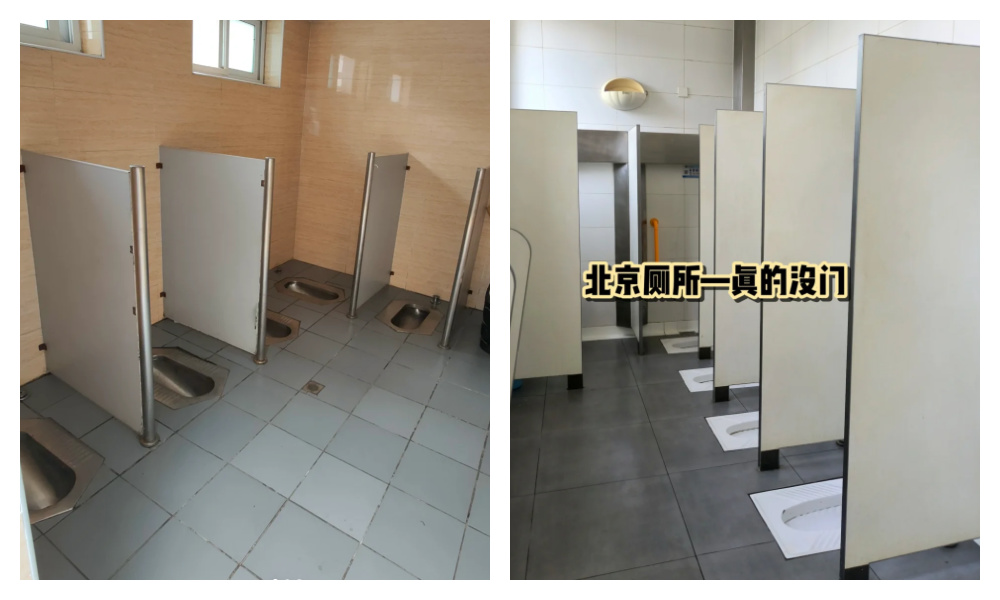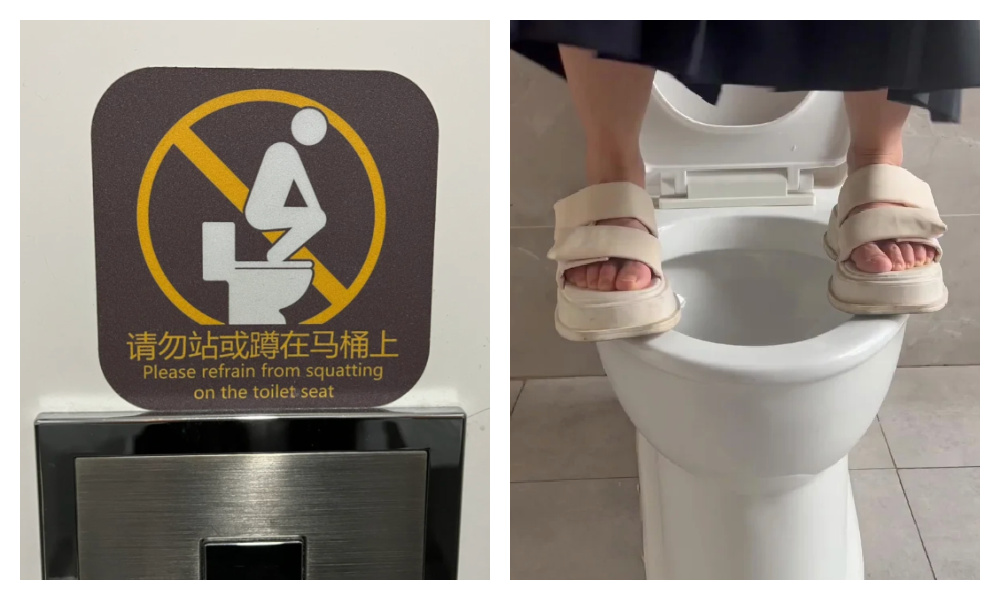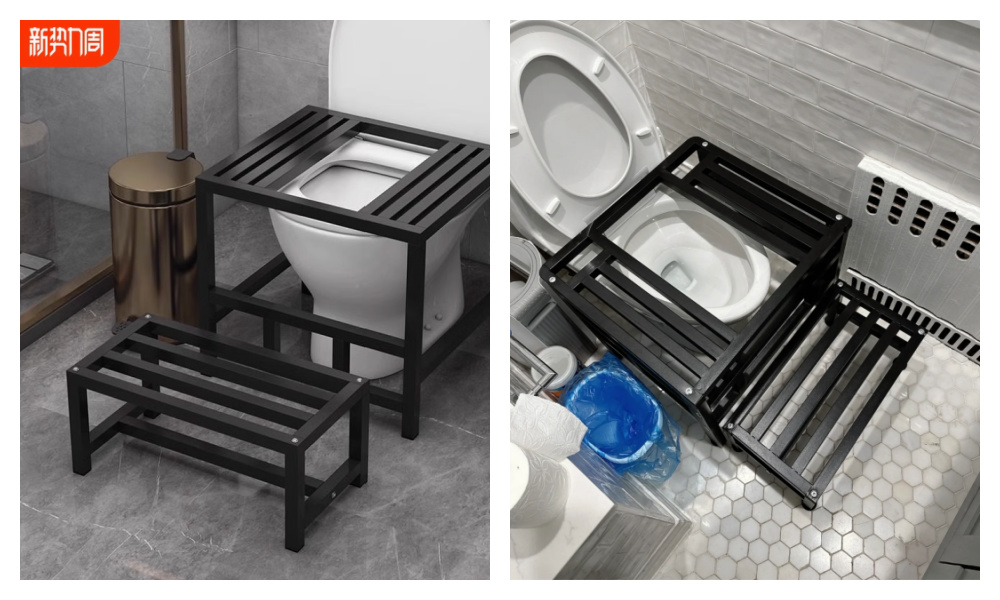China Society
Death of Chinese Female Motorcycle Influencer ‘Shigao ProMax’ Sparks Debate on Risky Rides for Online Attention
After the tragic death of young motorcyclist ‘Shigao ProMax,’ netizens criticize influencers for reckless riding in pursuit of followers and likes.
Published
6 months agoon

A Chinese female motorcyclist from Suzhou, known as “Shigao ProMax” (@石膏ProMax) on Douyin, tragically passed away this week following a motorcycle crash in Suzhou’s Wujiang District.
The incident occurred in the late afternoon of September 29, when the 19-year-old Shigao, whose real name was Yang Huizi (杨惠子), was a passenger on the motorcycle, with her (male) friend driving the vehicle.
As the motorcycle collided with a car emerging from a side intersection, Yang was thrown off the back, propelled several meters through the air before landing on the road. Although she was reportedly wearing a helmet, it cracked during the crash, and she sustained a severe head injury.
A video circulating on social media shows the aftermath of the accident, with the motorcycle driver lying on the road and Yang Huizi a few meters away, initially attempting to crawl before collapsing (warning for graphic content). Despite rescue efforts, she later died in the hospital. The current condition of Yang’s friend, the rider, remains unclear.

Screenshot of the scene of the accident.
Yang had nearly 80,000 fans on Douyin, where she posted her first video in December 2019. By September 2024, she had shared a total of 1,298 videos.
On Weibo, many commenters voiced concern over how the news was headlined, criticizing the emphasis on her gender in the hashtag. The hashtag “Famous Female Rider Shi Gao Dies in Traffic Accident” (#网红女骑士石膏发生车祸身亡#) garnered over 170 million views on Weibo on Tuesday. Many commenters felt the headline made it seem as if the young woman had crashed the motor herself, while she was merely a passenger.
Others, however, see this trending news as an opportunity to highlight the risky behavior of motorcyclists, who not only endanger their own lives by speeding but also jeopardize the safety of others by showing off in traffic and driving recklessly.
Especially female influencers/motorcyclists are criticized for careless driving while flaunting their looks for social media posts.
Over the past years, the death of multiple motorcycle influencers have made Chinese headlines. In 2022, a popular Douyin influencer and motorcyclist known as “Xiaoyu Loves Eating Fish” (@小鱼爱吃鱼) died in a collision after riding in the wrong lane. She was instantly killed on the spot. Xiaoyu had gained attention for her risky driving behavior, often wearing short skirts, tight leggings, or other revealing outfits instead of proper motorcycle gear.

“Xiaoyu Loves Eating Fish,” images via Tencent News
In 2023, two young girls—one 16 and the other 21—tragically lost their lives after their motorcycle crashed into a pillar. They were speeding and, apart from wearing helmets, were dressed in skirts and stockings with no additional protective gear. Both died instantly. The 16-year-old, known as An’an (安安), was a social media influencer. Her followers had previously warned her about her reckless behavior. She rode a motorcycle without a license.

An’an’s social media profile.
Within one year alone, from October 2022 to September 2023, at least seven motorcycle influencers made headlines in China after losing their lives in traffic accidents. Some bloggers blame the intense competition for online attention for these accidents, as influencers pull dangerous stunts and push the boundaries to gain more likes and followers.
Posting a video of a woman posing for a video while riding a motorcycle, the popular Weibo content creator HuangXiPao (@黄西炮) wrote: “So many female motorcycle influencers have died, yet it doesn’t stop others from still posing on the road for photos! Is this trend really that profitable?”
One commenter expresses frustration over how news about motorcycle influencers consistently reaches the top trending lists, while other serious incidents, such as the big stabbing incident that happened in Shanghai this week, seem to be kept off the hot lists. “Every time a female motorcycle influencer dies, it makes the trending lists. Meanwhile, three people are dead and 18 injured in Shanghai! Yet you’ve completely suppressed the search term (…) What is this about?!”
News about the motorcycle incident is also a reason for official channels to remind netizens about road safety. The official China Police account shared photos of the incident, stating: “Raise safety awareness and take responsibility for your life.”

By Manya Koetse
(follow on X, LinkedIn, or Instagram)
Spotted a mistake or want to add something? Please let us know in comments below or email us. First-time commenters, please be patient – we will have to manually approve your comment before it appears.
©2024 Whatsonweibo. All rights reserved. Do not reproduce our content without permission – you can contact us at info@whatsonweibo.com.
Manya is the founder and editor-in-chief of What's on Weibo, offering independent analysis of social trends, online media, and digital culture in China for over a decade. Subscribe to gain access to content, including the Weibo Watch newsletter, which provides deeper insights into the China trends that matter. More about Manya at manyakoetse.com or follow on X.

You may like
China Insight
Squat or Sit? China’s Great Toilet Debate and the Problem of Footprints on the Seat
From squatting to standing on seats: the messy reality of sitting toilets in Beijing malls.
Published
4 days agoon
March 25, 2025
FROM THE WEIBO WATCH PREMIUM NEWSLETTER
Shoe prints on top of the toilet seat are never a pretty sight. To prevent people from squatting over Western-style sitting toilets, there are some places that will place stickers above the toilet, reminding people that standing on the seat is strictly forbidden.

For years, this problem has sparked debate. Initially, these discussions would mostly take place outside of China, in places with a large number of Chinese tourists. In Switzerland, for example, the famous Rigi Railways caused controversy for introducing separate trains with special signs explaining to tourists, especially from China, how (not) to use the toilet.
Squat toilets are common across public areas in China, especially in rural regions, for a mix of historical, cultural, and practical reasons. There is also a long-held belief — backed by studies (like here or here) — that the squatting position is healthier for bowel movements (for more about the history of squat toilets in China, see Sixth Tone’s insightful article here).

Public squatting toilets in Beijing, images via Xiaohongshu.
Without access to the ground-level squat toilets they are used to — and feel more comfortable with — some people will climb on top of sitting toilets to use them in the way they’re accustomed to, seeing squatting as the more natural and hygienic method.

Not only does this make the toilet seat all messy and muddy, it is also quite a dangerous stunt to pull, can break the toilet, and lead to pee and poo going into all kinds of unintended directions. Quite shitty.

Squatting on toilets makes the seat dirty and can even break the toilet.
Along with the rapid modernization of Chinese public facilities and the country’s “Toilet Revolution” over the past decade, sitting toilets have become more common in urban areas, and thus the sitting-toilet-used-as-squat-toilet problem is increasingly becoming topic of public debate within China.
The Toilet Committee and Preference for Sitting Toilets
Is China slowly shifting to sitting toilets? Especially in modern malls in cities like Beijing, or even at airports, you see an increasing number of Western-style sitting toilets (坐厕) rather than squatting toilets (蹲厕).
This shift is due to several factors:
🚽📌 First, one major reason for the rise in sitting toilets in Chinese public places is to accommodate (foreign) tourists.
In 2015, China Daily reported that one of the most common complaints among international visitors was the poor condition of public toilets — a serious issue considering tourists are estimated to use public restrooms over 27 billion times per year.
That same year, China’s so-called “Toilet Revolution” (厕所革命) began gaining momentum. While not a centralized campaign, it marked a nationwide push to upgrade toilets across the country and improve sanitation systems to make them cleaner, safer, and more modern.
This movement was largely led by the tourism sector, with the needs of both domestic and international travelers in mind. These efforts, and the buzzword “Toilet Revolution,” especially gained attention when Xi Jinping publicly endorsed the campaign and connected it to promoting civilized tourism.
In that sense, China’s toilet revolution is also a “tourism toilet revolution” (旅游厕所革命), part of improving not just hygiene, but the national image presented to the world (Cheng et al. 2018; Li 2015).
🚽📌 Second, the growing number of sitting toilets in malls and other (semi)public spaces in Beijing relates to the idea that Western-style toilets are more sanitary.
Although various studies comparing the benefits of squatting and sitting toilets show mixed outcomes, sitting toilets — especially in shared restrooms — are generally considered more hygienic as they release fewer airborne germs after flushing and reduce the risk of infection (Ali 2022).
There are additional reasons why sitting toilets are favored in new toilet designs. According to Liang Ji (梁骥), vice-secretary of the Toilet Committee of the China Urban Environmental Sanitation Association (中国城市环境卫生协会厕所专业委员会), sitting toilets are also increasingly being introduced in public spaces due to practical concerns.
🚽📌 Squatting is not always easy, and can pose a safety risk, particularly for the elderly, pregnant women, and people with disabilities.
🚽📌 Then there are economic reasons: building squat toilets in malls (or elsewhere) requires a deeper floor design due to the sunken space needed below the fixture, which increases both construction time and cost.
🚽📌 Liang also points to an aesthetic factor: sitting toilets simply look more “high-end” and are easier to clean, which is why many consumer-oriented spaces prefer to install Western-style toilets.
So although there are plenty of reasons why sitting toilets are becoming a norm in newly built public spaces and trendy malls, they also lead to footprints on toilet seats — and all the problems that come with it.
The Catch 22 of Sitting vs Squad Toilets
This week, the issue became a trending topic on Weibo after Beijing News published an investigative report on it. The report suggested that most shopping malls in Beijing now have restrooms with sitting toilets, which should, in theory, be cleaner than the squat toilets of the past — but in reality, they’re often dirtier because people stand on them. This issue is more common in women’s restrooms, as men’s restrooms typically include urinals.
In researching the issue, a reporter visited several Beijing malls. In one women’s restroom, the reporter observed 23 people entering within five minutes. Although the restroom had only three squat toilets versus seven sitting ones, around 70% of the users opted for the squat toilets.
Upon inspection, most of the seven sitting toilets were dirty — despite being equipped with disposable seat covers — showing clear signs of urine stains and footprints. They found that sitting toilets being used as squat toilets is extremely common.
It’s a bit of a Catch-22. People generally prefer clean toilets, and there’s also a widespread preference for squat toilets. This leads to sitting toilets being used as squat toilets, which makes them dirty — reinforcing the preference for squat toilets, since the sitting toilets, though meant to be cleaner, end up dirtier.
In interviews with 20 women, nearly 80% said they either hover in a squat or directly squat on the toilet seat. One woman said, “I won’t sit unless I absolutely have to.” While some of those quoted in the article said that sitting toilets are more comfortable, especially for elderly people, they are still not preferred when the seats are not clean.
In the Beijing News article, the Toilet Committee’s Liang Ji suggested that while a balanced ratio of squat and sitting toilets is necessary, a gradual shift toward sitting toilets is likely the future for public restrooms in China.

How NOT to use the sitting toilet. Sign photographed by Xiaohongshu user @FREAK.00.com.
Liang also highlighted the importance of correct toilet use and the need to consider public habits in toilet design.
In Squatting We Trust
On Chinese social media, however, the majority of commenters support squatting toilets. One popular comment said:
💬 “Please make all public toilets squat toilets, with just one sitting toilet reserved for people with disabilities.”

Squatting toilets in a public toilet in a Beijing hutong area, image by Xiaohongshu user @00后饭桶.
The preference for squatting, however, doesn’t always come down to bowel movements or tradition. Many cite a lack of trust in how others use public toilets:
💬 “When it comes to things for public use, it’s best to reduce touching them directly. Honestly, I don’t trust other people…”
💬 “Squatting is the most hygienic. At least I don’t have to worry about touching something others touched with their skin.”
💬 “I hate it when all the toilets in the women’s restroom at the mall are sitting toilets. I’m almost mastering the art of doing the martial-arts squat (蹲马步).”
Others view the gradual shift toward sitting toilets as a result of Westernization:
💬 “Sitting toilets are a product of widespread ‘Westernization’ back in the day — the further south you go, the worse it gets.”
But some come to the defense of sitting toilets:
💬 “Are there really still people who think squat toilets are cleaner? The chances of stepping in poop with squat toilets are way higher than with sitting ones. Sitting toilet seats can be wiped with disinfectant or covered with paper. Some people only care about keeping themselves ‘clean’ without thinking about whether the next person might end up stepping in their mess.”
💬 One reply bluntly said: “I don’t use sitting toilets. If that’s all there is, I’ll just squat on top of it. Not even gonna bother wiping it.”
It’s clear this debate is far from over, and the issue of people standing on toilet seats isn’t going away anytime soon. As China’s toilet revolution continues, various Toilet Committees across the country may need to rethink their strategies — especially if they continue leaning toward installing more sitting toilets in public spaces.
As always, Taobao has a solution. For just 50 RMB (~$6.70), you can order an anti-slip sitting-to-squatting toilet aid through the popular e-commerce platform.

The Taobao solution.
For Chinese malls, offering these might be cheaper than dealing with broken toilets and the never-ending battle against footprints on toilet seats…
By Manya Koetse
(follow on X, LinkedIn, or Instagram)
References:
Ali, Wajid, Dong-zi An, Ya-fei Yang, Bei-bei Cui, Jia-xin Ma, Hao Zhu, Ming Li, Xiao-Jun Ai, and Cheng Yan. 2022. “Comparing Bioaerosol Emission after Flushing in Squat and Bidet Toilets: Quantitative Microbial Risk Assessment for Defecation and Hand Washing Postures.” Building and Environment 221: 109284. https://doi.org/10.1016/j.buildenv.2022.109284.
Bhattacharya, Sudip, Vijay Kumar Chattu, and Amarjeet Singh. 2019. “Health Promotion and Prevention of Bowel Disorders Through Toilet Designs: A Myth or Reality?” Journal of Education and Health Promotion 8 (40). https://doi.org/10.4103/jehp.jehp_198_18.
Cao, Jingrui 曹晶瑞, and Tian Jiexiong 田杰雄. 2025. “城市微调查|商场女卫生间,坐厕为何频频变“蹲坑”? [In Shopping Mall Women’s Restrooms, Why Do Sitting Toilets Frequently Turn into ‘Squat Toilets’?]” Beijing News, March 20. https://weibo.com/ttarticle/p/show?id=2309405146044773302810. Accessed March 19, 2025.
Cheng, Shikun, Zifu Li, Sayed Mohammad Nazim Uddin, Heinz-Peter Mang, Xiaoqin Zhou, Jian Zhang, Lei Zheng, and Lingling Zhang. 2018. “Toilet Revolution in China.” Journal of Environmental Management 216: 347–356. https://doi.org/10.1016/j.jenvman.2017.09.043.
Dai, Wangyun. 2018. “Seats, Squats, and Leaves: A Brief History of Chinese Toilets.” Sixth Tone, January 13. https://www.sixthtone.com/news/1001550. Accessed March 22, 2025.
Li, Jinzao. 2015. “Toilet Revolution for Tourism Evolution.” China Daily, April 7. https://europe.chinadaily.com.cn/opinion/2015-04/07/content_20012249_2.htm. Accessed March 22, 2025.
Spotted a mistake or want to add something? Please let us know in comments below or email us. First-time commenters, please be patient – we will have to manually approve your comment before it appears.
©2025 Whatsonweibo. All rights reserved. Do not reproduce our content without permission – you can contact us at info@whatsonweibo.com.
China Food & Drinks
China Trending Week 11: The Yang Braised Chicken Scandal, Haidilao Pee Incident, Taiwan Tensions
What’s been trending on Weibo and beyond? I doomscrolled Chinese social media so you don’t have to.
Published
2 weeks agoon
March 13, 2025
Here’s the latest roundup of the three top trends and most noteworthy discussions on Chinese social media this week.
🍚🤢Yang’s Braised Chicken Rice Scandal

The popular Chinese franchise Yang’s Braised Chicken Rice (杨铭宇黄焖鸡米饭) is at the center of attention this week—for all the wrong reasons. The company, which opened its first restaurant in 2011 and has since franchised more than 2500 locations across China, was exposed by Beijing News for reusing expired ingredients and reselling leftover food in at least three of its restaurants in Zhengzhou and Shangqiu (Henan). Cooks were smoking in the kitchen and even going as far as dyeing spoiled, darkened beef with food coloring to make it appear fresh.
The issue has sparked widespread concern on Chinese social media—not only because Yang’s Braised Chicken Rice is a well-known restaurant chain, but also because food safety and kitchen hygiene remain ongoing concerns in China. The timing of this news is particularly significant, as it was published in the lead-up to March 15—China’s National Consumer Rights Day, an annual event that highlights consumer protection issues.
China’s State Council Food Safety Commission Office has now ordered authorities in Henan and Shandong, where Yang’s Braised Chicken is headquartered, to thoroughly investigate the case. The affected stores will reportedly be closed permanently, but the impact extends far beyond these locations—most netizens discussing the scandal have made it clear they won’t be ordering from Yang’s Braised Chicken Rice anytime soon.
Can the company win back consumer trust? Even though general management has been apologizing and pledged to personally oversee kitchen standards, this is not the first time the company is in hot water. In 2024, a customer in Chengdu allegedly ordered Yang’s Braised Chicken Rice via takeout and discovered a fully cooked dead rat in their meal (picture here not for the faint of heart).
🇹🇼⚔️Beijing Angrily Responds to Lai Ching-te’s Speech: “Pushing Taiwan Towards the Danger of War”

While tough language on Taiwan was already trending last week during China’s Two Sessions, another wave of discussions on Taiwan has emerged this week. This follows a high-level national security meeting held on Thursday by Taiwanese President Lai Ching-te (赖清德), after which he addressed the media and proposed more aggressive strategies to counter Beijing’s so-called ‘united front’ efforts within Taiwan.
On Friday, Beijing responded with stern remarks. Chen Binhua (陈斌华), spokesperson for the Taiwan Affairs Office of the State Council, called Lai Ching-te a “destroyer of cross-strait peace” (“两岸和平破坏者”) and a “creator of crises in the Taiwan Strait” (“台海危机制造者”) who is “pushing Taiwan towards the dangerous situation of war” (“把台湾推向兵凶战危险境”).
Chen also reiterated Beijing’s stance that reunification with Taiwan is inevitable. This message was further amplified on Chinese social media platforms such as Weibo and Douyin through the hashtag “Inevitable Reunification with the Motherland” (#祖国必然统一#).
🔥🚽Haidilao’s “Pissgate”

Last week, on March 6, a peculiar news item went viral on Chinese social media, and I tweeted out the viral video here. The footage shows a young man standing on a table in a private dining room at a Haidilao restaurant, seemingly urinating into the hotpot. The incident was later confirmed to have taken place at the popular chain’s Bund location in Shanghai on the night of February 24.
Just when you thought the world couldn’t get any crazier… someone stands up and pisses in the Haidilao hotpot. Blasphemy! Hotpot treason!
Anyway, Haidilao reported the guy to the police, and I’m pretty sure he won’t be welcome back anytime soon. pic.twitter.com/3ytLhGdYjX
— Manya Koetse (@manyapan) March 6, 2025
Honestly, the video seemed staged (the “pee” looked more like water), but understandably, Haidilao was very pissed about the negative impact on its reputation. In case you’re not familiar: Haidilao is one of China’s most popular hotpot chains, known for its excellent service and food quality (read here).
The company immediately launched an investigation into the video’s origins and reported the two men—the one urinating and the one filming—to the police.
This week, the incident gained even more traction (even the BBC covered it) after it was revealed that Haidilao had reimbursed 4,109 customers who dined at the restaurant between February 24, when the incident occurred, and March 8, when all tableware was discarded and the entire restaurant was disinfected.
Not only did Haidilao reimburse customers, but they also compensated them tenfold.
This compensation strategy sparked all kinds of discussions on Chinese social media. While many agreed with Haidilao’s solution to prevent a marketing crisis, some customers and netizens raised ethical questions, such as:
💰If you paid for your meal with coupons and only spent a couple of cents in cash, is it fair that some customers only received 9 RMB ($1.25) in compensation?
💰If you paid for an entire group of friends, meaning you originally spent around $140 on a meal but now received $1,400 in reimbursement, should you split the compensation with your friends?
💰How should cases be handled where a third party made the reservation and ends up claiming part of the compensation?
By now, the incident has become about much more than just pissing in soup.
By Manya Koetse
(follow on X, LinkedIn, or Instagram)
Spotted a mistake or want to add something? Please let us know in comments below or email us. First-time commenters, please be patient – we will have to manually approve your comment before it appears.
©2025 Whatsonweibo. All rights reserved. Do not reproduce our content without permission – you can contact us at info@whatsonweibo.com.
Subscribe

How K-pop Fans and the 13-Year-Old Daughter of Baidu VP Sparked a Debate on Online Privacy

Squat or Sit? China’s Great Toilet Debate and the Problem of Footprints on the Seat

Weibo Watch: The Great Squat vs Sitting Toilet Debate in China🧻

Chinese Netizens Turn to Tim Cook Over Battery Factory’s Illegal Overtime

Revisiting China’s Most Viral Resignation Letter: “The World Is So Big, I Want to Go and See It”

Our Picks: Top 10 Chinese Buzzwords and Phrases of 2024 Explained

“Dear Li Hua”: The TikTok/Xiaohongshu Honeymoon Explained

Beyond the Box Office: What’s Behind Ne Zha 2’s Success?

Weibo Watch: Christmas in China Is Everywhere and Nowhere

Weibo Watch: A New Chapter

15 Years of Weibo: The Evolution of China’s Social Media Giant

Tuning Into the Year of the Snake

The ‘China-chic Girl’ Image and the Realities of China’s Competitive Food Delivery Market

TikTok Refugees, Xiaohongshu, and the Letters from Li Hua

“Black Myth: Wukong”: From Gaming Screens to the CMG Spring Festival Gala?
Get in touch
Would you like to become a contributor, or do you have any tips or suggestions? Get in touch here!
Popular Reads
-

 China Insight11 months ago
China Insight11 months agoThe Tragic Story of “Fat Cat”: How a Chinese Gamer’s Suicide Went Viral
-

 China Music12 months ago
China Music12 months agoThe Chinese Viral TikTok Song Explained (No, It’s Not About Samsung)
-

 China Digital10 months ago
China Digital10 months agoChina’s 2024 Gaokao Triggers Online Discussions on AI
-

 China Arts & Entertainment11 months ago
China Arts & Entertainment11 months agoSinging Competition or Patriotic Fight? Hunan TV’s ‘Singer 2024’ Stirs Nationalistic Sentiments




